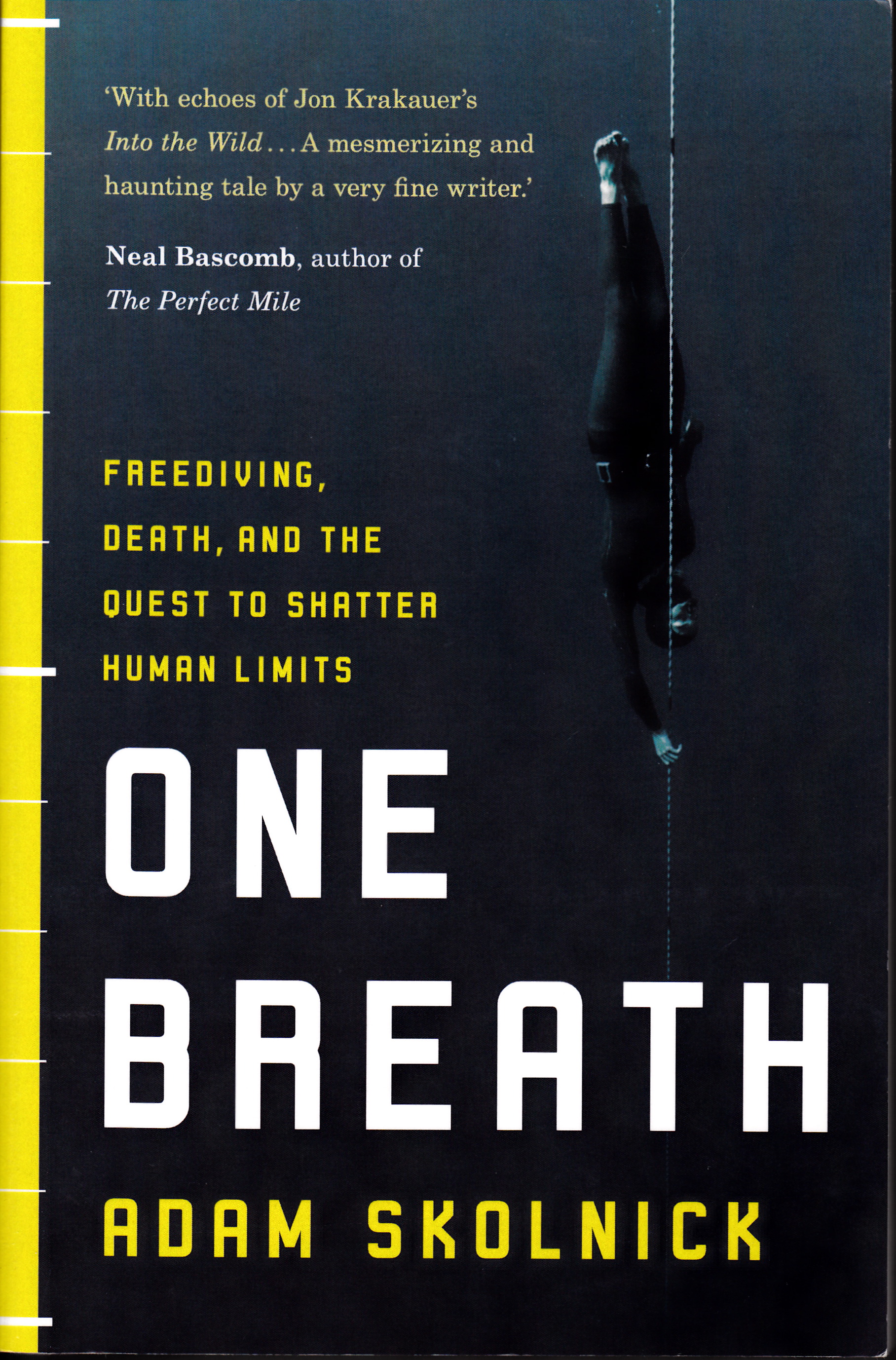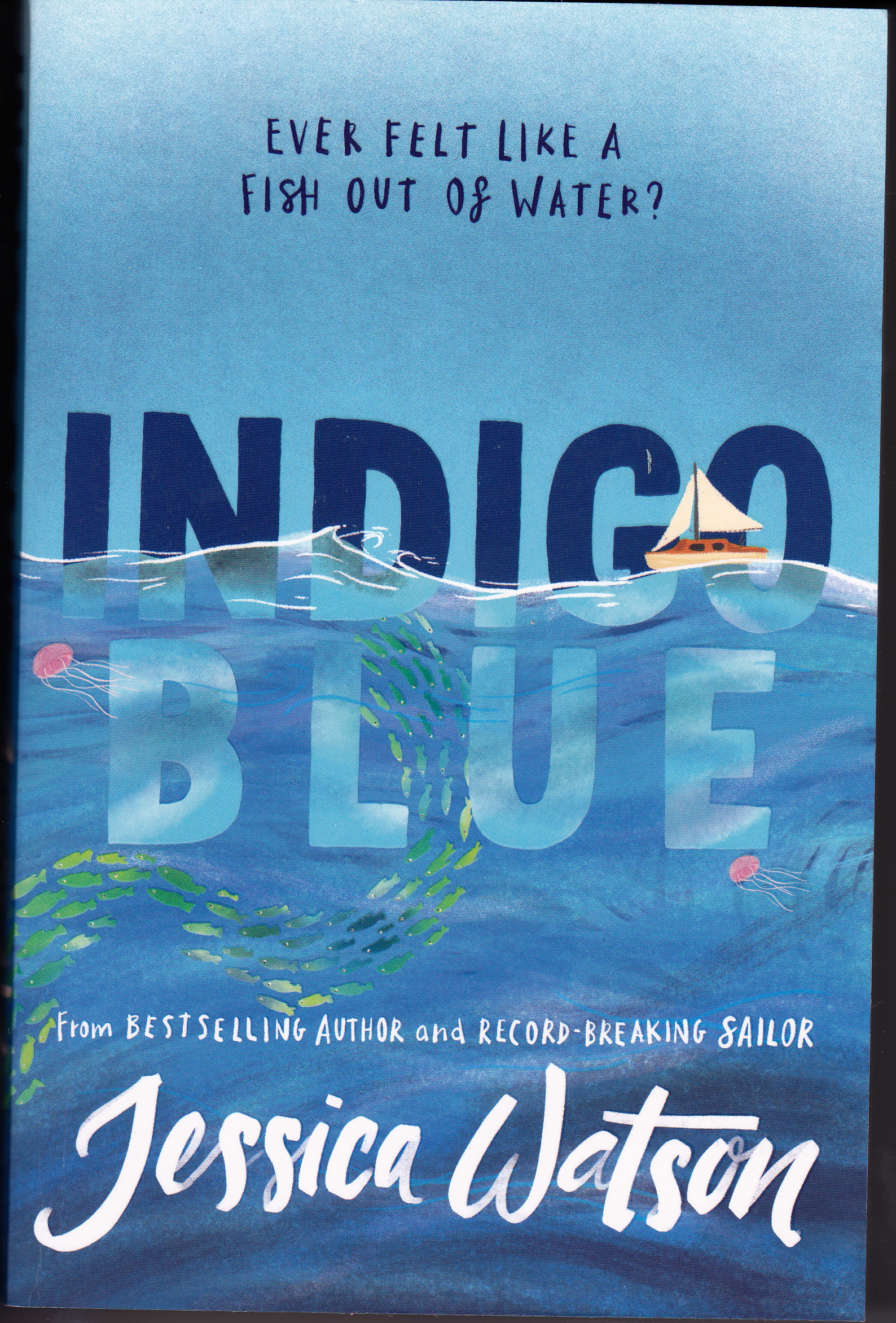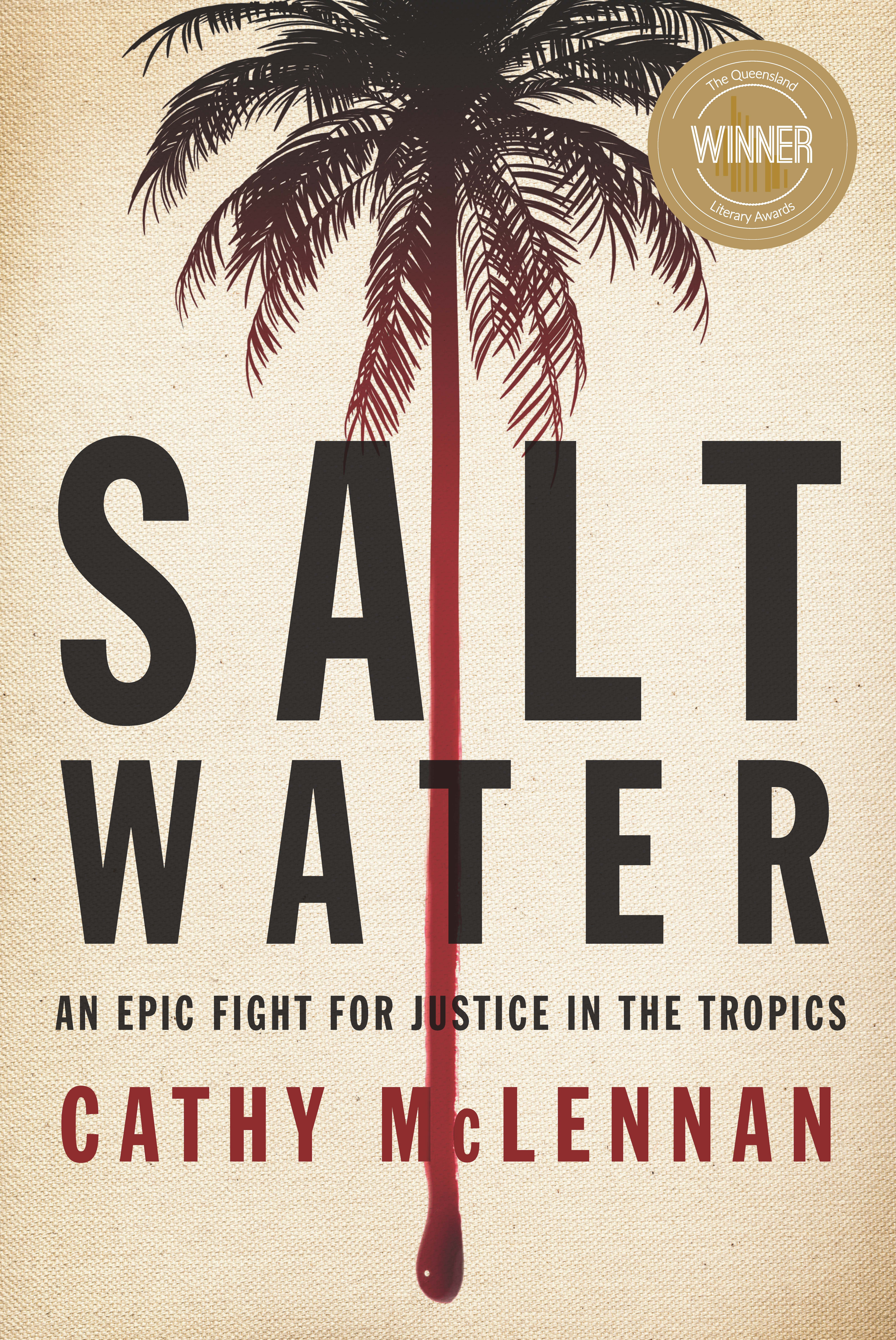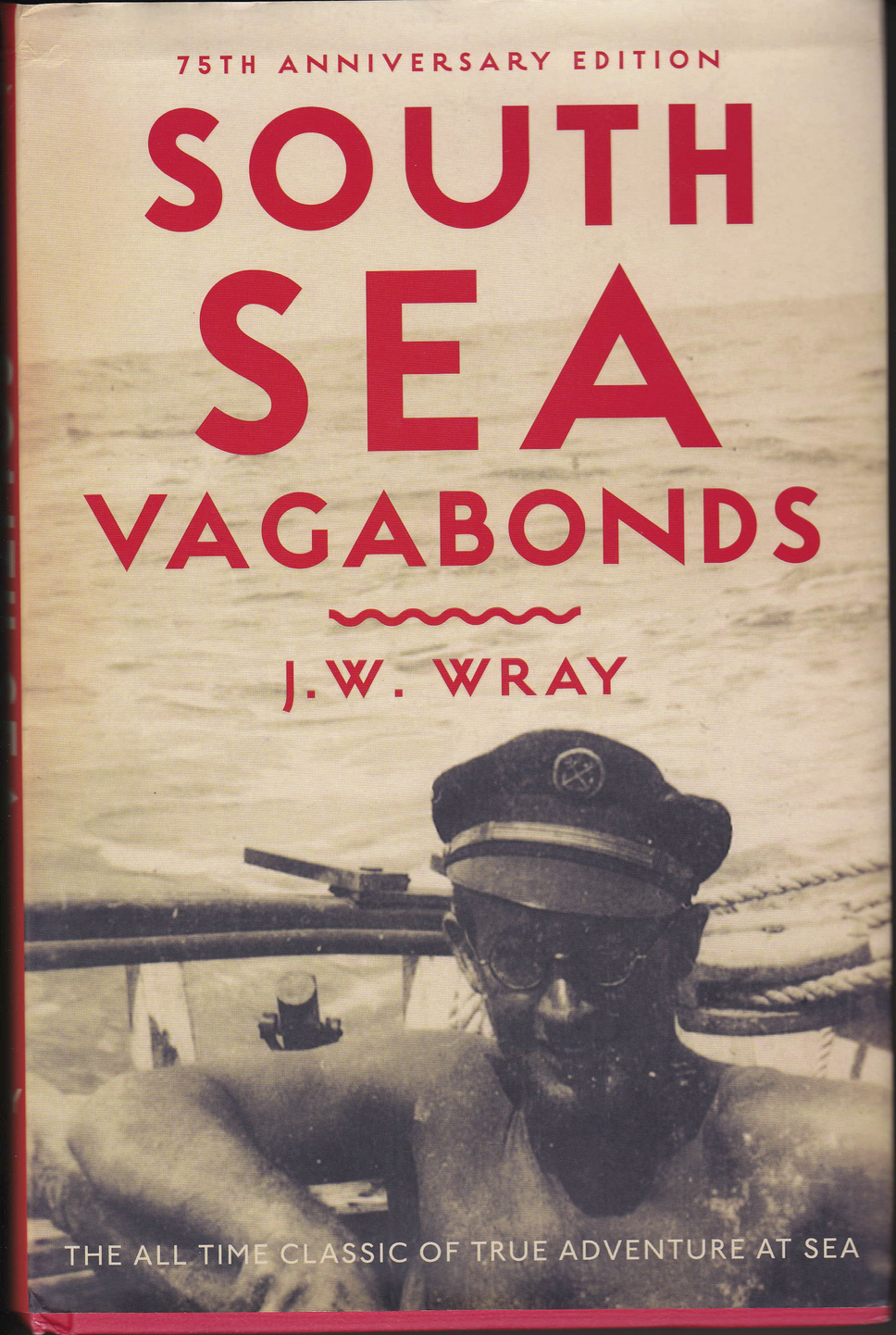A dive to the
edge of darkness
One breath. That’s one long out-breath because the air, accumulated through slow inhalations and then “sipping” to saturate the lungs with every scrap you can fit in, is all you have to last down to your chosen depth and back up again if you are a freediver.It’s a breath that could be your last breath.
Journalist Adam Skolnick went to cover the Vertical Blue freediving competition at Dean’s Blue Hole on Long Island, Bahamas, in November 2013 for The New York Times, and was there when the enigmatic champion diver Nick Mevoli died.
Mevoli was relatively new to the sport but he was in a hurry and had already made his mark, being the first American to swim to 100m on a single breath.
What Skolnick had thought would be a routine assignment was suddenly, urgently becoming a vivid story that he would be compelled to write. One Breath is the result, an account of the men and women who have been diving for glory in this young competition, always pushing against records and the limits of human endurance.
By any measure freediving is an extreme sport. No matter the preparation and the physical and mental toughness of the competitors, strange things can happen when narcosis hits or when the hair on the back of your neck stands up in water where there is no visibility.
Skolnick tackles the idea of obsession but without judgment, and talks about the physical pain freedivers endure to meet their goals. Mevoli, he says, had a particularly high pain threshold, the kind of attribute that might make an athlete able to achieve more but, at the same time, put himself further into the danger zone.
Almost all divers competing in the various categories of competition in freediving events have had occasions when they have blacked out, either at the surface or below. The sport has safety divers standing by to help bring up any freediver that doesn’t make it to the surface before passing out.
Skolnick does not discuss whether that loss of consciousness has the same high that entices people to use asphyxiation in extreme forms of sex but the narcotic pull of the sport flirts with the edge of darkness in a way that many people find troubling and disconcerting.
No one who has seen the video of Mevoli’s last dive would think of this sport as pleasure.
Freediving is still establishing all its rules, with the development and infrastructure of the sport maturing over the past 25 years. The ramshackle organisation of some of the competitions, the ad hoc arrangements for medical assistance that dogged the sport until the death of Nick Mevoli, seem careless in the wake of previous deaths in the sport. Skolnick is highly critical of the medical officer on duty at Dean’s Blue Hole and the handling of the dying Mevoli when he surfaced.
Skolnick has fleshed out his portrait of Mevoli with interviews with family and friends as well as his fellow divers.
He describes a young man who had grown up pushing physical boundaries and gone on to lead a peripatetic life, finding his feet in the big cities of America and his niche in the cool depths of the challenging sea.
At competition venues he was close to the other divers and would cook and socialise but Mevoli was also prone to meltdowns and a poor performance would see him rant and rail, oblivious to whomever was in his path.
What is certain is that he never fulfilled his potential, as a person and as a diver, and his death, and the deaths of other free divers, has caused much soul searching amongst those who remain.

… there is nothing - absolutely nothing - half so much worth doing as simply messing about in boats.
- Ratty to Mole in The Wind in the Willows by Kenneth Grahame




